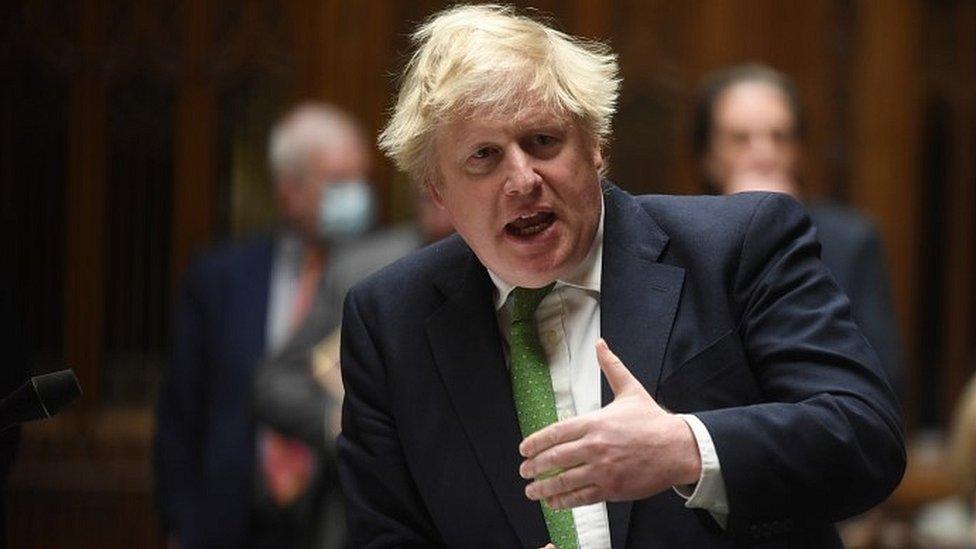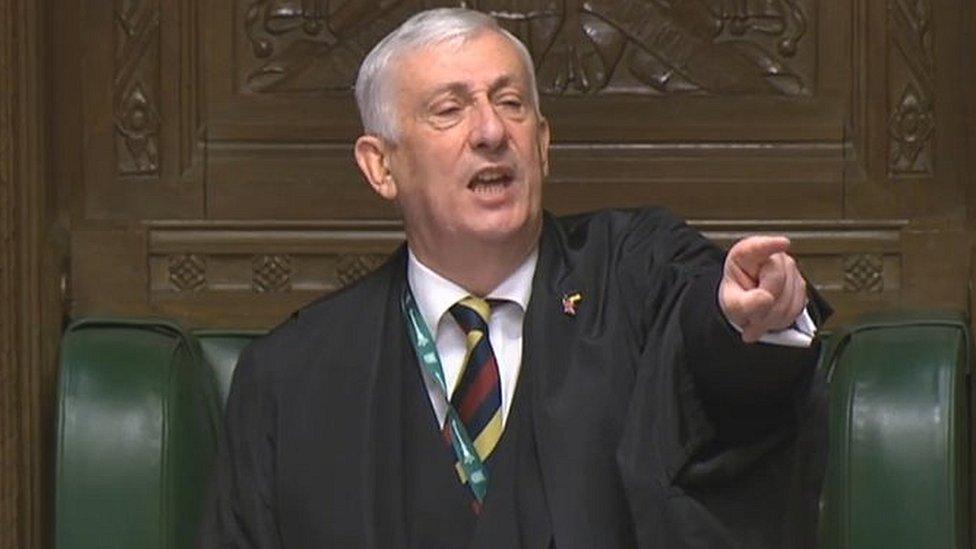Partygate: Boris Johnson may face by-election if found to have misled MPs
- Published

Boris Johnson could face a by-election to remain as an MP if he is found to have misled Parliament over parties in Downing Street during lockdown.
The outgoing prime minister is facing a parliamentary inquiry over what he told MPs about the events.
If it rules against him and he is suspended from the Commons for 10 days he could face a recall petition.
This means voters in his Uxbridge and South Ruislip constituency could force a by-election for the seat.
Mr Johnson, who has promised to co-operate with the inquiry, could stand in that by-election.
He told the Commons in January that Covid "guidance was followed" and the rules had been "followed at all times".
But in April, he was fined by police for attending a birthday party in his honour in Downing Street during the first lockdown.
In May, he told MPs that, although his original statement had not been true, he had "believed it to be true" at the time.
Parliament's cross-party Privileges Committee of MPs is investigating whether the prime minister misled Parliament.
Sir Lindsay said that, if the committee found Mr Johnson had done so, and he was suspended from the Commons chamber for 10 sitting days or more - or 14 calendar days - this would trigger a "recall petition" in his constituency of Uxbridge and South Ruislip, in north-west London.
Under the rules, if 10% or more of eligible voters sign such a petition, a by-election must take place.
Mr Johnson would still be able to stand in the contest for a seat he won with a 7,210-vote majority at the 2019 general election.
It is not clear how long an MP could be suspended for if they were found to have misled the House of Commons.
In recent years, MPs have received suspensions of five days for disorderly conduct (Alba's Neale Hanvey and Kenny MacAskill) and 30 days for failing to declare a holiday paid for by the Sri Lankan government (the DUP's Ian Paisley).
In Mr Paisley's case, a recall petition was launched, but the 10% threshold to trigger a by-election was not reached.

Sir Lindsay Hoyle says a lengthy Commons suspension for the PM would prompt a petition on his future
Much of the previous discussion of Mr Johnson's remarks in the Commons over Partygate has focused on whether he deliberately, rather than accidentally, misled MPs.
But the committee has published advice from Eve Samson, the Commons's top expert on parliamentary privilege, suggesting that "in broad terms, intention is not necessary for a contempt [of Parliament] to be committed".
It also says its inquiry will continue despite Mr Johnson's resignation as prime minister.
The committee intends to call Mr Johnson to give oral evidence in public in the autumn, under oath.
Asked if the prime minister would co-operate with the inquiry, his official spokesman said: "We have said we will assist the committee in their work."
Mr Johnson is due to stand down on 5 September, when either Foreign Secretary Liz Truss or former Chancellor Rishi Sunak - the two remaining candidates in the Tory leadership contest - will replace him.